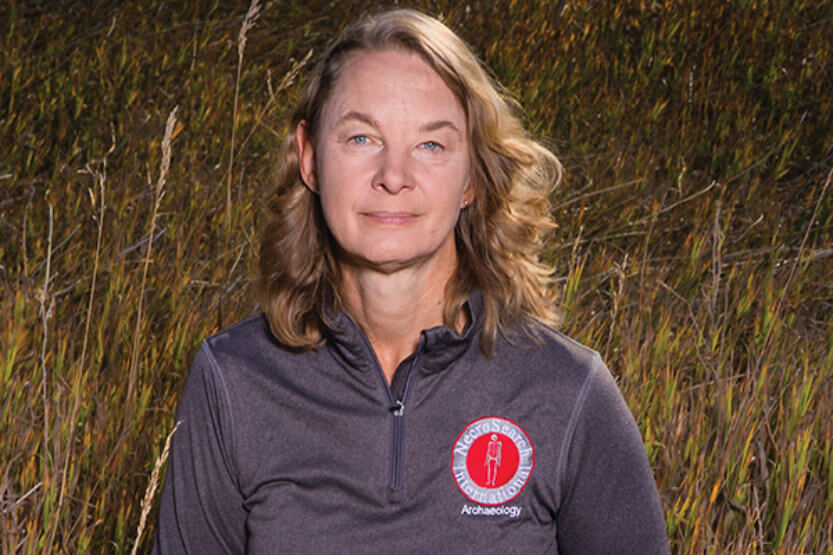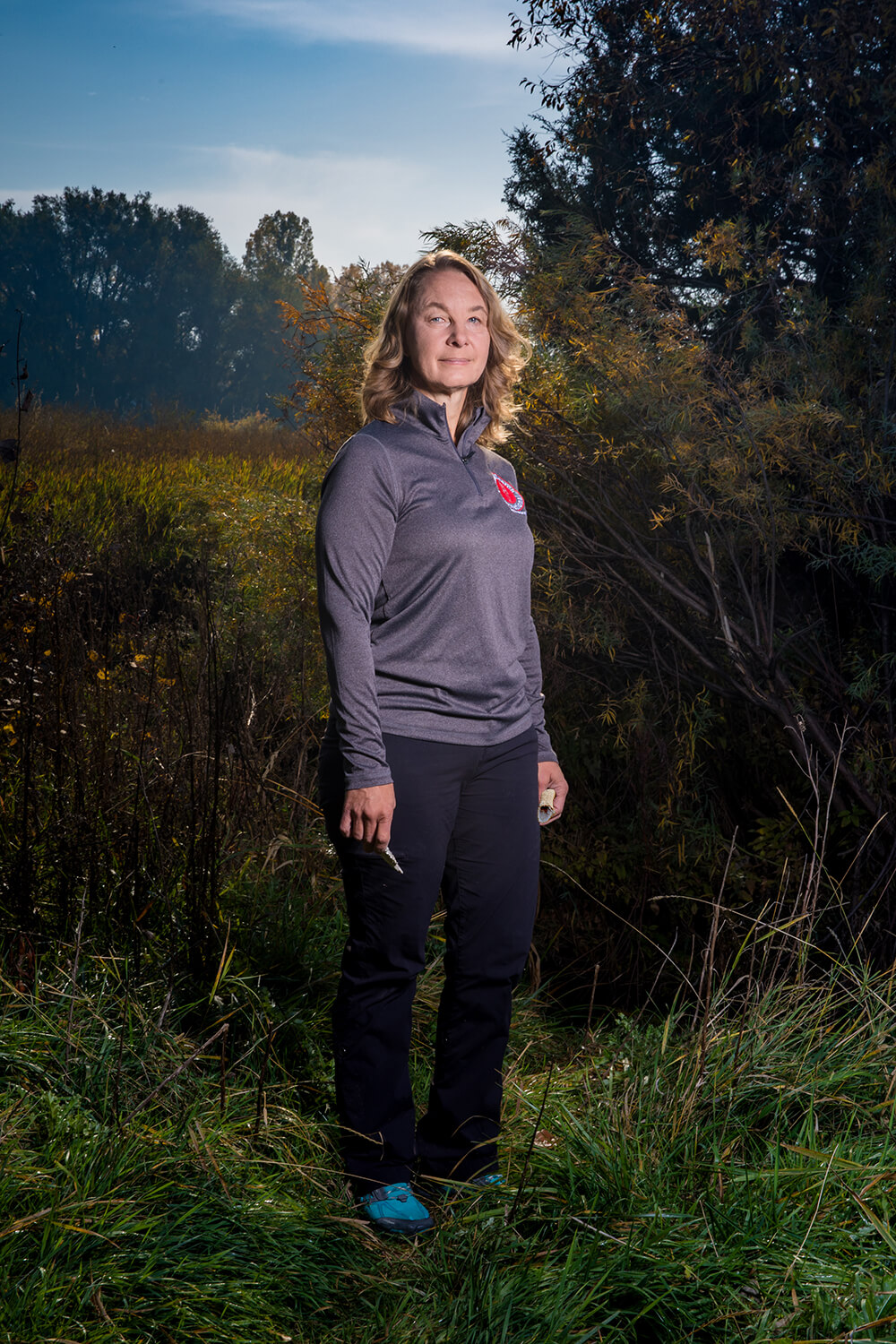Alumni Interview: Julia Bauer
 “I feel passionately that the dead deserve to be buried with the dignity of their name, and the living deserve to know what happened to their missing loved ones,” says Julia Bauer, ’94 LAS, of her work locating the remains of World War II servicemen. (Image by Vanessa Houk)
“I feel passionately that the dead deserve to be buried with the dignity of their name, and the living deserve to know what happened to their missing loved ones,” says Julia Bauer, ’94 LAS, of her work locating the remains of World War II servicemen. (Image by Vanessa Houk) I first got interested in human skeletons when I fell off a pony.
I was 13, and I [severely] broke my left wrist. Always a science geek, I had a fascinating time during my recovery looking at my X-rays, figuring out what I did to break it and how they managed to put it back together. It’s what got me interested in the biology of bones and osteology—that’s the study of skeletal material.
I originally started as an animal sciences major at Illinois because I wanted to do veterinary surgery and orthopedic research, but I let some folks convince me I was too small to do skeletal manipulation for surgery. So I kind of thumbed my nose and thought, “Fine, I’ll do something else!” I went to a human osteology class and absolutely loved it.
I met my husband at Illinois. He’s a videographer who’s switched to streaming live events since the COVID pandemic hit us. We live in Fort Collins, Colo., where I’ve taught anthropology classes at a local community college for 16 years. Since 2009, I’ve also volunteered for a nonprofit called NecroSearch International, which uses a multidisciplinary approach to help law enforcement agencies locate clandestine gravesites and evidence. I can’t really comment on any cases I’ve worked on since most of them are still being investigated. My sons kind of avoid answering when people ask what kind of work I do. Mostly they say they don’t know or “She’s an anthropologist,” though the older one likes to brag that I do “crime scene stuff.”
Because of COVID, I’ve had to shelve my dream job—working for another nonprofit called History Flight, which recovers the remains of servicemen who were lost during World War II. I worked on a teeny tiny little island in the Pacific that is part of the Republic of Kiribati. So far, there hasn’t been a single COVID case there. [Nevertheless,] they completely shut their borders. The atoll I was on, Tarawa, wasn’t very large or wide. On a map, it’s about as thick as a toothpick. When I first flew over, I thought, “I’m going to land on that?” In a three-day battle in November 1943, 1,200 U.S. Marines died there, along with 4,000 Japanese and approximately 2,000 Koreans. It must have been a living nightmare.
Our job was to find the material remains of our soldiers and hopefully get them back home. With my oddball set of osteology skills, I felt driven to help. I feel passionately that the dead deserve to be buried with the dignity of their name, and the living deserve to know what happened to their missing loved ones. What I did, of course, is a very small part of the entire process. History Flight is the recovery crew. Then the Defense Department’s POW/MIA Accounting Agency—DPAA for short—comes to the island to collect the remains. There’s a ceremony before the remains are sent to Hawaii on a plane. In Hawaii, there are other osteologists and people who are experts in DNA or material evidence who identify the individuals. There are currently just over 400 Marines not accounted for from the Battle of Tarawa. It’s pretty emotional work.
These days, I’m doing contract archaeology work in Wyoming. We’re walking along a grid and mapping things we find with a GPS. This is also a dinosaur hotbed, and there are a fair number of critters who just sort of dropped dead here. I’m not a paleontologist, however. When we see one another in a field, we kind of wave, but that’s it. There are also live animals. Yesterday, we had to chase off an antelope that wanted to eat one of our pin flags.
If you tell people you’re looking for flakes of rock on the ground, they look at you like you’re weird. But I’m having a blast. I like being outdoors. It’s like a treasure hunt. You never know what you’re going to find. You have no idea what’s out there. The other day, I found an arrowhead that was probably 9,000 years old.


